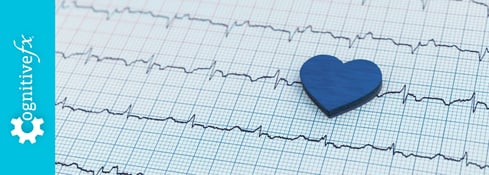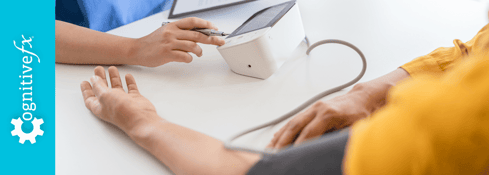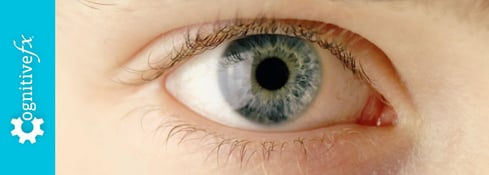Tinnitus—a buzzing, hissing, or ringing in the ears—is a common and frustrating symptom after a mild traumatic brain injury (mTBI). While it often resolves within days, for some patients it lingers for months or even years. This is especially true for those with post-concussion syndrome (PCS), where tinnitus may occur alongside fatigue, headaches, difficulty concentrating, dizziness, and mood changes.
Unfortunately, there is no universally effective cure for tinnitus. Most treatments focus on managing symptoms rather than resolving the underlying neurological dysfunction. At Cognitive FX, we take a different approach—treating tinnitus as part of a broader pattern of brain injury and helping the brain heal itself through targeted rehabilitation.
If you’re wondering what treatment is like, many of our patients have spoken about their experiences, like Olivia, a former figure skater who battled a mysterious chronic illness for years, and Sam, who tried every concussion clinic in Ontario before finding Cognitive FX.
In this article, we’ll cover:
Note: If you’re experiencing symptoms that won’t resolve after a traumatic brain injury, you’re not alone. 95% of our patients experience statistically verified restoration of brain function. To see if you are eligible for treatment, sign up for a consultation.
What Does Tinnitus Feel Like After a Head Injury?
Tinnitus refers to the perception of sound when no external noise is present. It may affect one or both ears, occur constantly or intermittently, and vary widely in tone and intensity. Many patients find that tinnitus becomes more noticeable when they are fatigued, overwhelmed, or in a quiet room—especially when trying to fall asleep.
Common descriptions of tinnitus sounds include:
- Ringing
- Buzzing
- Static
- Hissing
- Whooshing
- Pulsing
- Humming
- Music (rarely)—a condition known as musical ear syndrome
Tinnitus can disrupt concentration, sleep, and emotional well-being. It may also be accompanied by noise sensitivity, a feeling of pressure in the ears, and difficulty processing auditory information—all of which can affect quality of life.
What Causes Tinnitus After a Traumatic Brain Injury (TBI)?
The cause of tinnitus varies between individuals. For patients with PCS, it often stems from one or more of the following:
1. Damage to the Auditory System
-
Ossicular chain disruption: Misalignment of the tiny middle ear bones (malleus, incus, stapes) can disrupt sound transmission and cause tinnitus.
-
Inner ear damage: Injury to the hair cells that convert sound into electrical signals can lead to hearing loss and tinnitus. If there’s a build-up of pressure, it’s known as Meniere’s Syndrome.
-
Auditory nerve damage: The cochlear nerve (cranial nerve VIII) may become hyperactive or misfire after a head trauma.
-
Auditory cortex dysfunction: The brain’s sound-processing center in the temporal lobe may become overactive or disorganized.
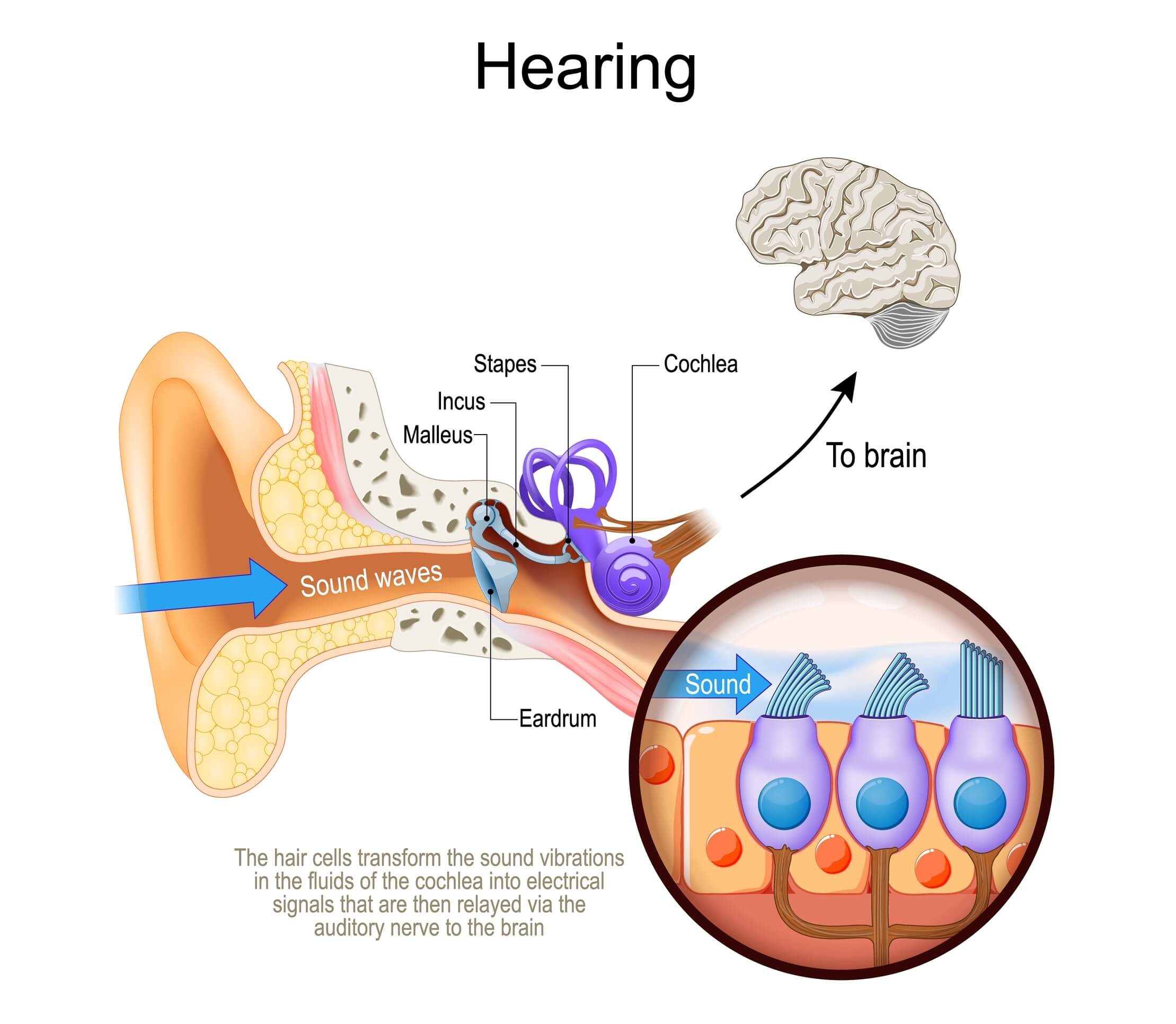
2. Neurovascular Coupling (NVC) Disruption
Neurovascular coupling directs blood flow to parts of the brain that need it most. After injury, this process can become impaired. If the auditory regions of the brain don’t get enough oxygen and nutrients, they may malfunction—causing phantom sounds like tinnitus.
3. Whiplash and Neck Injuries
Injuries like whiplash can strain or irritate nerves in the neck that connect to the auditory system. Inflammation, muscle tension, and joint dysfunction in this area may interfere with how sound is processed, potentially triggering or worsening tinnitus.
Additionally, because the ear canal is closely connected to structures in the neck and jaw, persistent tension or misalignment in these regions—particularly the upper cervical spine or temporomandibular joint (TMJ)—can contribute to ongoing tinnitus symptoms.
4. Psychological Stress
Anxiety and depression don’t directly cause tinnitus, but they can make it more noticeable. In turn, tinnitus can worsen these conditions, creating a feedback loop of distress.
5. Medication Side Effects
Some medications list tinnitus as a possible side effect—including aspirin, certain antidepressants (like Prozac), and anti-anxiety drugs (like Klonopin).
Common Treatment Options for Tinnitus
Tinnitus after a brain injury can be challenging to treat, largely because the underlying cause isn’t always clear. To make matters worse, it’s often overlooked in favor of addressing more urgent or severe symptoms.
While there’s no single “fix” for tinnitus, several treatment approaches may help patients cope:
Sound Masking
Masking devices play gentle background noise—white noise, rain, wind, or soft music—to distract the brain from tinnitus symptoms, especially at night.
Cognitive Behavioral Therapy (CBT)
CBT can help patients shift their thoughts and emotional responses to tinnitus. Techniques include relaxation, acceptance therapy, and attention redirection to reduce distress and improve quality of life.
Hearing Aids
For those with hearing loss and tinnitus, hearing aids can amplify external sounds and reduce the brain’s focus on internal phantom sounds.
Notched Sound Therapy
This therapy plays filtered audio that excludes the specific frequency of the patient’s tinnitus. Over time, this can help the brain “de-emphasize” the phantom sound. It’s shown promise in cases of tonal tinnitus.
Neuromodulation Devices
Devices like PoNS (Portable Neuromodulation Stimulator) combine tongue stimulation with sound therapy. Though not designed specifically for tinnitus, early studies show potential benefits.
Medication
Several medications may be prescribed for persistent tinnitus, but effectiveness varies. Currently, drugs that show positive results include nortriptyline, amitriptyline, alprazolam, clonazepam, and oxazepam.
Other drugs can be used to treat conditions associated with tinnitus, such as depression, anxiety, and sleep problems. For example, studies show that tricyclic antidepressants and melatonin can help with depressive symptoms and sleep disturbances, respectively, which in turn improves tinnitus symptoms.
How Cognitive FX Treats Tinnitus
At Cognitive FX, we specialize in treating the lingering symptoms of post-concussion syndrome, including tinnitus, that persist for months or even years after the initial injury. Our patients rarely experience tinnitus in isolation—it often appears alongside fatigue, headaches, dizziness, noise sensitivity, cognitive issues, and emotional symptoms. These symptoms can stem from brain dysfunction, not just damage to the ears or auditory pathways.
Rather than addressing each symptom in a vacuum, we treat the brain as an interconnected system. A key difference in our approach is our multidisciplinary, fully coordinated care team. At many clinics, patients must piece together care from audiologists, neurologists, physical therapists, and mental health professionals—who may never speak to each other. At Cognitive FX, our physicians, neuropsychologists, physical therapists, and cognitive and vision specialists work together under one roof, aligning their efforts to help you heal.
Functional Brain Imaging and Targeted Evaluation
Treatment begins with a comprehensive assessment, including:
- Review of your symptoms and medical history
- Physical and neurological testing
- Cognitive and psychological evaluations
- Structural MRI to rule out major damage
- Functional Neurocognitive Imaging (fNCI)—our key diagnostic tool
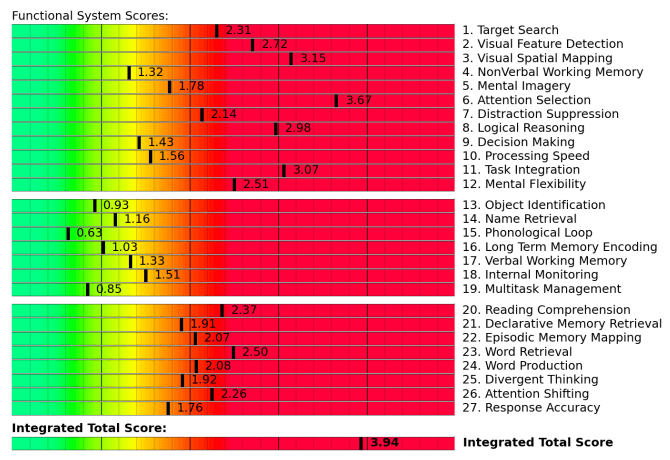
The fNCI scan measures how 100+ brain regions are functioning and communicating during cognitive tasks. It reveals where neurovascular coupling (NVC)—the delivery of blood flow to active brain areas—has been disrupted. These real-time, personalized insights let us pinpoint dysfunction and tailor your treatment plan to target the regions and systems most in need of support.
Standard imaging or isolated clinical assessments can’t match this precision. With fNCI, we focus your therapy where it matters most, maximizing your chances for meaningful recovery.
EPIC Treatment Program
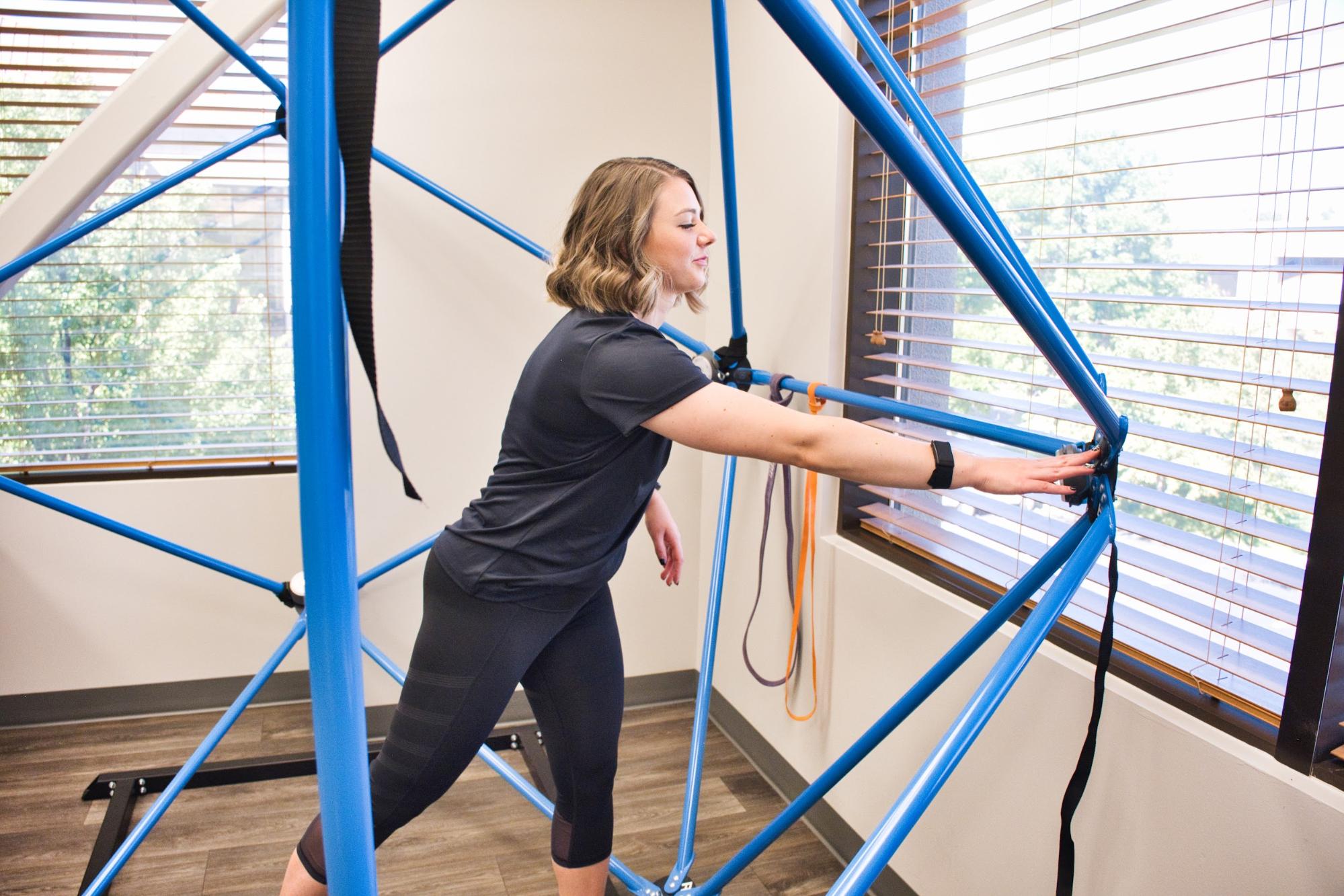
Our personalized brain injury treatment program—EPIC (Enhanced Performance in Cognition)—delivers a coordinated, tailored mix of:
- Aerobic exercise to boost blood flow to the brain.
- Vestibular and balance therapy to improve function of the vestibulocochlear nerve.
- Vision and sensory therapy to improve brain integration.
- Neuromuscular therapy to relieve tension in the neck and jaw.
- Cognitive training to restore executive function.
- Sensorimotor training to improve coordination and reduce cognitive fatigue.
- Mindfulness and emotional regulation coaching.
These therapies work together to reignite neural pathways, improve efficiency, and create the conditions needed for healing. As patients improve, tinnitus can become quieter, less frequent, or easier to ignore.
While direct tinnitus resolution is not guaranteed, many of our patients report improvement in both tinnitus and related symptoms over the course of treatment.
Tips for Managing Tinnitus at Home
While you're healing, you can take additional steps at home to manage symptoms:
-
Get consistent sleep: Fatigue can make tinnitus worse. Try to maintain a regular sleep schedule.
-
Limit caffeine, alcohol, and smoking: These can exacerbate tinnitus in some individuals.
-
Use soothing sounds: Fans, white noise, or nature sounds can help distract your brain from the tinnitus.
-
Practice relaxation: Stress often amplifies tinnitus. Try meditation, deep breathing, or gentle movement like yoga.
-
Stay active and engaged: Exercise and hobbies can help reduce mental focus on tinnitus.
-
Protect your hearing: Use ear protection in loud environments and avoid loud music through headphones.
-
Explore supportive technologies: FDA-approved tools like Lenire, as well as tinnitus relief apps, may provide additional relief.
-
Join a support group: Talking with others who understand what you’re going through can be powerful and validating.
Getting Personalized Treatment for Lingering Symptoms from Brain Injury
Tinnitus after a concussion can be distressing and isolating. But you don’t have to face it alone.
At Cognitive FX, we specialize in helping patients recover from post-concussion syndrome and other brain injuries by addressing the root causes of their symptoms—not just masking them.
If tinnitus is interfering with your recovery or quality of life, we’re here to help.
If you’re experiencing symptoms that won’t resolve after a traumatic brain injury, you’re not alone. 95% of our patients experience statistically verified restoration of brain function. To see if you are eligible for treatment, sign up for a consultation.







